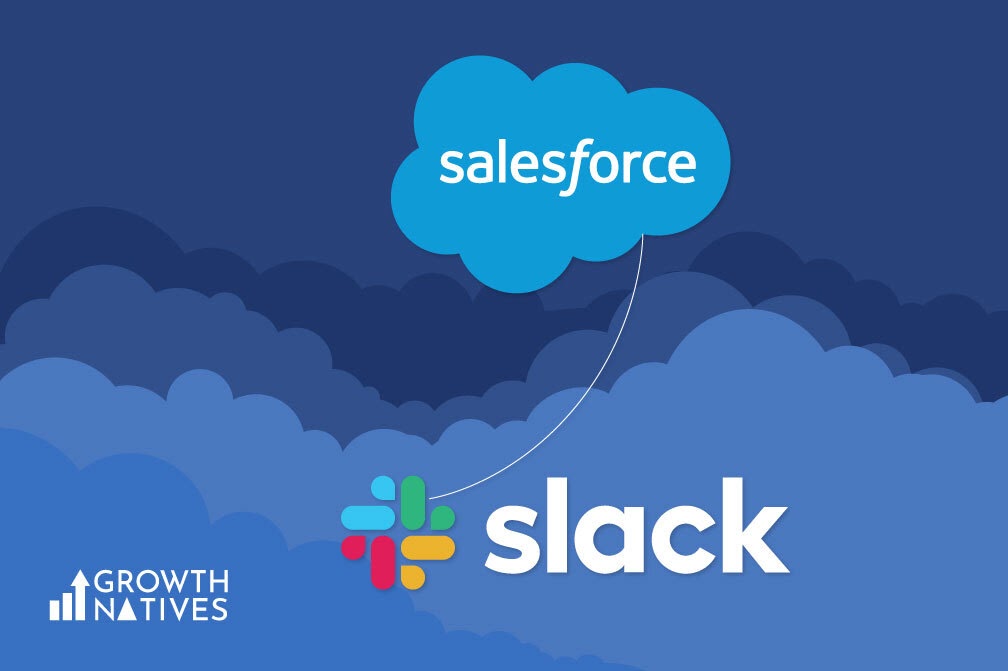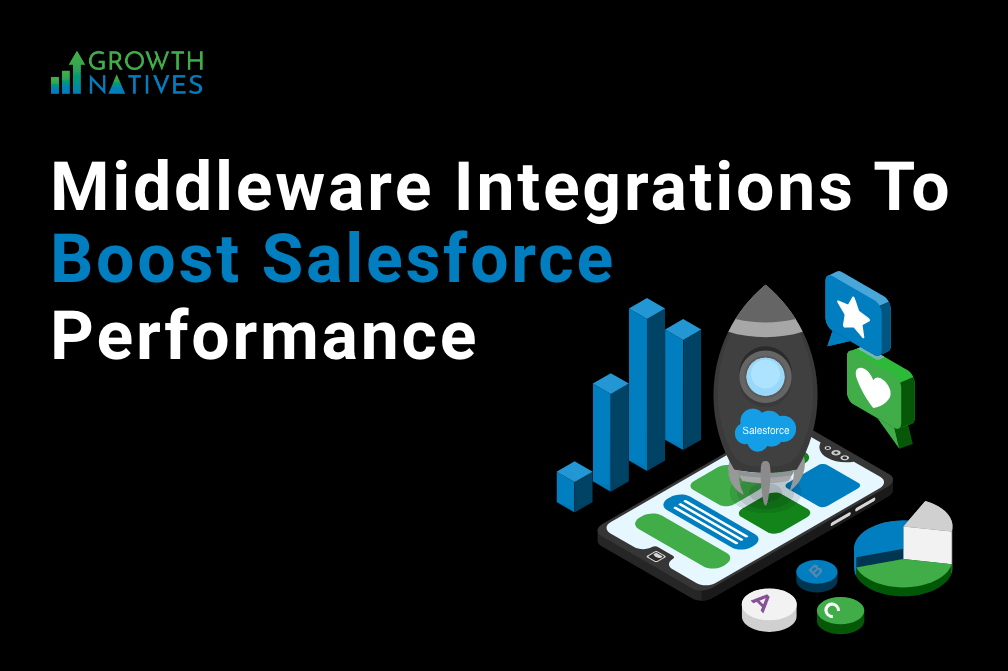
Salesforce’s Slack Acquisition for $27.7 Billion – A Match Made in Heaven?
By Sakshi Arora
Feb 18, 20216 min read
‘A match made in heaven’ is what Marc Benioff, CEO of Salesforce, has dubbed Salesforce’s $27.7 billion Slack acquisition. The deal has set speculations in motion, and it seems that it is a deal with upsides for both companies.
Salesforce gets a collaboration platform used by millions across the globe into their technology portfolio, and Slack gets to reignite its growth plans by teaming up with a cloud giant having a proven network of enterprise sales staff.
So, if you are one of the 142,000 businesses with a collective user base of 12 million employees using Slack, what does Slack acquisition mean for you? Let’s discuss.
Much like in the case of any acquisition, there is a degree of uncertainty among Slack’s existing customers.
Slack’s key differentiator is its attractive design and its openness as a platform. It offers 2,400 third-party integrations, and it must retain that position as an independent connector of apps following its acquisition.
The current clients are carefully looking at the nature of the changes that will follow. While many companies chose Slack for its simplicity and neutrality, they will review their options if the platform integrates intimately with a different ecosystem of products
How Will This Deal Affect Slack’s Product Roadmap Now?
Salesforce-Slack acquisition definitely comes with big plans for Slack, and we cannot deny that some changes are inevitable. But it is tough to predict Slack’s product roadmap at this stage.
Based on Marc Benioff’s Dreamforce to You 2020 keynote, we can expect Slack to become the new interface for Customer 360 - the data platform that connects Salesforce’s analytics, marketing, app spanning sales, and workflow integrations, to name a few.
The official statement by Salesforce places the acquisition as: “Slack will be deeply integrated into every Salesforce Cloud. As the new interface for Salesforce Customer 360, Slack will transform how people communicate, collaborate, and take action on customer information across Salesforce as well as information from all of their other business apps and systems to be more productive, make smarter, faster decisions, and create connected customer experiences.”
The Slack acquisition by Salesforce has clear benefits for the organizations that use both Salesforce and Slack. During Salesforce Q3 earnings call, Benioff stated that the crossover is already strong. 90% of Slack customers are already using Salesforce tools for their operations.
There is a wide range of possibilities when we think about connecting various Salesforce apps with Slack. Quip - Salesforce’s productivity tool can be integrated more tightly with Slack to offer access to spreadsheet documents and word documents.
The integrations will make life easier for existing users of both platforms when they don’t have to complete the integrations and enable the capabilities manually.
However, one implication is that Slack’s current features and function development roadmap can be put on a back burner while they focus on linking it within Salesforce’s portfolio.
What Does the Deal Mean for Salesforce?
Slack acquisition can prove to be the silver bullet that Salesforce needs to bolster the social enterprise vision of the company. And though there have been several acquisitions in the company’s history, none of the deals have connected all the dots.
As the world transitions towards a more remote working style across the globe, the Salesforce-Slack acquisition can be a game-changer in meeting the virtual sales and service demands. With their forces combined, Salesforce and Slack can innovate new ways to support businesses that are adapting to the new normal.
Salesforce’s competitors have already moved into the domain with products like Microsoft Teams, and Workfront. Salesforce is trying to gain a competitive footing with them and the Slack acquisition can further prevent other competitors from entering the market.
Will it Affect Slack Pricing?
No details have been revealed about Slack’s pricing and product tiers yet. Since Slack has driven its growth with the free option over the years, Salesforce won’t make any significant changes to the free version in the foreseeable future.
Slack has always followed a bottom-up approach to promote viral adoption of the platform in organizations. It is a different route as compared to Salesforce’s direct sales model. So, the lower tier of the platform won’t be affected significantly.
But we should not count out a competitive pricing strategy for Slack as Salesforce gets ready to compete with the likes of Microsoft, which bundles all the products and offers them for free. Since Slack is now a part of a bigger brand, it can offer a lot more flexibility in terms of pricing.
Will Slack Still Remain a Standalone Application?

Perhaps the biggest unknown of the Slack acquisition is the extent to which Slack will continue to operate as a standalone application. Some integration with the Salesforce tools is inevitable, but the degree of integration is not clear.
The probability of Slack being folded into Salesforce entirely is low. If Slack functions solely as an interface for Salesforce tools, it would mean losing on Slack’s non-Salesforce customer base, and the high price tag of the acquisition makes such a move highly unlikely.
For now, Salesforce’s top brass agree to keep Slack as an independent platform, and Slack CEO and Co-Founder Stewart Butterfield will continue to manage the platform under the new ownership.
So far, companies acquired by Salesforce have had mixed roadmaps. Demandware was bought for @2.8 billion in 2016, and ExactTarget was taken over for @2.5 billion in 2013, and they were rebranded as Salesforce Commerce Cloud and Marketing cloud by the company.
On the other hand, other acquisitions such as Tableau ($15.7 billion), Quip ($750 million), and Mulesoft ($6.5 billion) have retained their branding. Since their acquisition, Quip and Mulesoft have been integrated deeply into Salesforce platforms but still remain standalone products.
In a nutshell, Salesforce is very careful about its acquisitions. Their proven track record of buying companies and then taking them forward to do more is a sign that Slack will continue to remain an essential cornerstone of their portfolio.
Did we miss out on any information? Feel free to share your thoughts in the comments section below.




